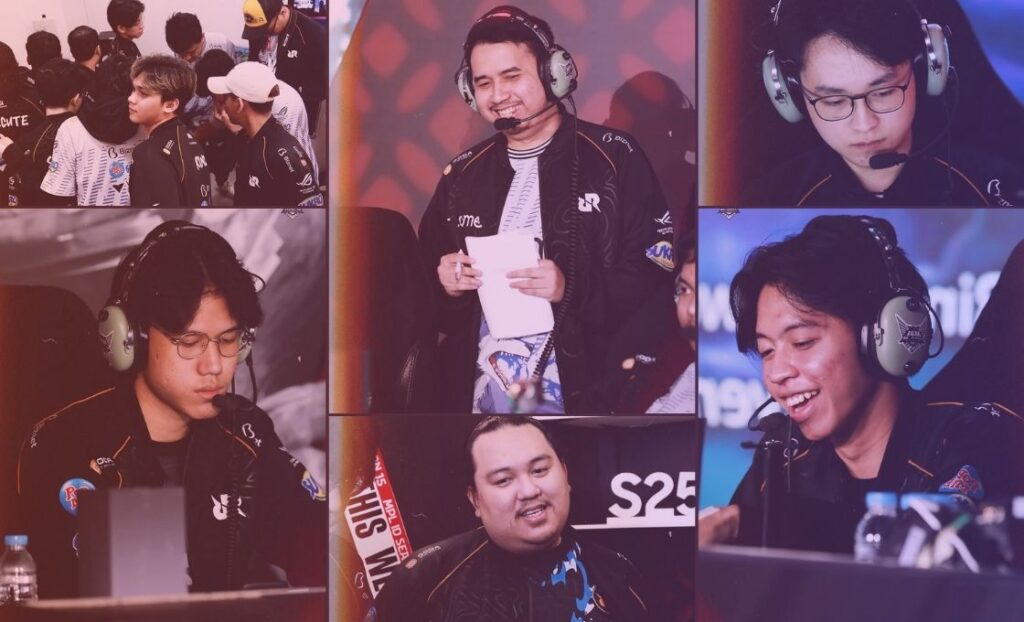Introduction
Esports has surged from a niche pastime into a formidable global phenomenon, commanding significant revenues and captivating a vast audience. Major esports tournaments now electrify packed arenas, draw millions of online viewers, and secure substantial sponsorships. Yet, the fundamental question persists: Can esports truly attain the profound cultural impact wielded by football (soccer)?
Football is steeped in history, interwoven with tradition and national identity. The FIFA World Cup stands as a testament to this, with the gripping 2022 final between France and Argentina captivating an astonishing 1.5 billion viewers, while the 2018 final between France and Croatia drew 516.6 million, and over 3.5 billion people tuned in to the entire tournament. While esports is experiencing exponential growth, its enduring cultural significance remains a subject of intense examination. This essay delves into whether esports can genuinely rival football’s cultural influence by meticulously analyzing crucial factors such as accessibility, community engagement, economic power, historical presence, and the profound emotional connections each inspires.
1. Global Accessibility and Universal Reach
Football’s enduring dominance is intrinsically linked to its remarkable accessibility. A simple ball and an open space are all that is required, enabling participation across a spectrum of socioeconomic backgrounds. This inherent simplicity has forged football into a truly universal sport, passionately played in diverse settings across the globe.
Long-standing institutions, from schools and universities to government bodies and countless others, have been instrumental in extending football’s reach to individuals from disparate economic, social, and educational strata.
Esports, conversely, necessitates electronic devices and reliable internet access, thereby erecting a technological barrier, particularly in regions grappling with limited digital infrastructure. Nevertheless, the burgeoning prevalence of mobile gaming has significantly mitigated this challenge. Titles such as Mobile Legends: Bang Bang and PUBG Mobile have cultivated massive followings in nations like Indonesia, India, and Brazil, where high-end PCs or consoles are less commonplace.
Furthermore, a closer examination reveals that esports and football operate on fundamentally different levels of categorization. Esports, by its very nature, encompasses a multitude of distinct game titles. At a categorical level, esports should be more accurately compared with the broader realm of (physical) sports. However, I have specific and considered reasons for intentionally juxtaposing these seemingly mismatched categories – which I will elaborate on later in this discourse.
Check this out: Decoding the Gaming Industry: A Strategic Mapping of Its Ecosystem
Subsequently, scrutinizing individual esports titles reveals a stark reality: esports influence and reach are considerably more fragmented. MLBB, for instance, could be argued as the preeminent esport in Southeast Asia, particularly within Indonesia and the Philippines. However, in South Korea, the dominant title is undoubtedly League of Legends. The landscape shifts entirely when considering the United States, Europe, China, or the Middle East.
Spoiler alert: fragmentation is a central theme that will permeate much of this comparative analysis.
2. Community Bonds and Fan Allegiance
Football’s profound cultural impact is inextricably woven with the fabric of community engagement. Often, fans inherit their unwavering support for local teams across generations, forging deep familial and communal bonds. Football clubs frequently embody the spirit of cities, regions, and even national identities, cultivating profound emotional connections that transcend mere fandom. Events like the FIFA World Cup possess an unparalleled ability to unite people across cultural divides, fostering shared global experiences that resonate deeply.
Esports, while undeniably boasting passionate and dedicated fans, currently lacks the deep-seated generational connection that football has painstakingly cultivated over more than a century. The majority of prominent esports titles have only existed for two to three decades, and the fickle nature of game popularity means that dominance can be fleeting. Unlike football clubs, many of which boast over a century of rich history, esports teams are relatively nascent entities, often reliant on corporate sponsorships rather than deeply rooted, community-driven support.
However, a compelling narrative of burgeoning regional and national pride is beginning to emerge within esports, particularly in nations such as South Korea (with the legacy of StarCraft and the ongoing dominance of League of Legends), China (with the fervent communities surrounding Honor of Kings and Dota 2), and Brazil (with the passionate followings of Counter-Strike and Free Fire). Landmark tournaments like the League of Legends World Championship and The International (Dota 2) are igniting national rivalries that echo the fervor of the FIFA World Cup. As esports continues to nurture this sense of regional and national identity, it holds the potential to cultivate a level of community-driven support akin to that enjoyed by football.
It is also crucial to acknowledge the significant internal segmentation within the esports community itself. Even the most ardent enthusiasts of MLBB esports may remain unaware of the thriving League of Legends leagues across various regions or the prestigious VALORANT championships.
This fragmented community not only underscores esports’ current limitations in terms of widespread exposure but also highlights its fractured solidarity, a challenge virtually absent within the unified world of football fandom.

3. Economic Might and Endorsements
Football stands as an undeniable financial behemoth. In 2024 alone, global spending on international transfers in men’s soccer reached a staggering $8.59 billion, with English clubs leading the charge by investing $1.88 billion in incoming players. The Premier League’s combined revenues for the 2023 financial year surpassed €7.1 billion (£5.9 billion), nearly double that of Germany’s Bundesliga (€3.6 billion) and Spain’s La Liga (€3.7 billion). Iconic clubs like Real Madrid have shattered records in merchandise sales, generating revenues of €196 million in 2024, almost doubling their earnings from five years prior.
When considering football in its entirety, its global market value transcends mere billions, reaching into the hundreds of billions of dollars.
Meanwhile, esports has undeniably experienced rapid and impressive economic growth. In 2024, the global esports market was valued at $4.3 billion, with projections indicating a robust expansion to nearly $6 billion by 2029. Prize pools have also witnessed dramatic escalation; the Esports World Cup 2024, for instance, boasts the largest prize pool in esports tournament history, awarding a life-altering $60,000,000. In 2021, Dota 2’s The International offered a remarkable $40 million prize pool.
Significant sponsorships from prominent global brands such as Red Bull, Mercedes-Benz, and Intel further underscore the substantial financial potential inherent in esports.
However, football’s economic model is more stable. Esports still relies heavily on game publishers who control intellectual property rights and can influence the competitive scene’s direction. For esports teams to achieve sustainable independence and financial stability comparable to football clubs, a more autonomous economic structure is necessary. Yet, considering the private ownership of game titles, esports may never reach football’s economic level since nobody owns football.
The parties who benefit most economically from esports are the game publishers. This explains why most major esports organizations and tournament organizers diversify across multiple titles. They simply cannot rely on a single game for long-term sustainability. In contrast, football’s biggest clubs like Manchester United and Real Madrid don’t need to expand into other sports.
This inherent private property element also contributes to the fragmentation within esports – as it is a natural inclination for companies to safeguard their own intellectual assets.
4. Enduring Legacy and Deep-Rooted Tradition
Football boasts a rich history spanning over a century, with its origins tracing back to the 19th century. Generations have grown up immersed in the sport, playing it, watching it, and passionately passing down their love for the game, imbuing football with an unshakeable cultural foundation built on shared history and tradition.
Esports, in contrast, is still in its relative infancy. The first major tournaments emerged in the 1990s, and mainstream recognition only began to solidify in the 2010s. Furthermore, the very landscape of esports is characterized by constant flux – what commands immense popularity today may fade into relative obscurity within a decade. For example, StarCraft once reigned supreme as the dominant esport but has since experienced a decline in prominence.
For esports to achieve comparable cultural longevity, individual game titles must maintain relevance and captivate audiences across multiple generations. While titles like Counter-Strike, League of Legends, and Dota 2 have demonstrated remarkable staying power, enduring for over a decade, it remains uncertain whether esports as a whole can sustain its current level of popularity over the next 50 to 100 years.
Again, the privately owned nature of esports titles makes it challenging to envision a single game sustaining the enduring appeal of football.
Modern football’s origins lie in 19th-century England, where its rules were formally codified in 1863 with the establishment of The Football Association (FA), marking the birth of association football as we recognize it today. This signifies that football has existed for an impressive 162 years. Even when considering companies across broader industries, only a select few have managed to endure for more than 150 years.
Furthermore, while other esports stakeholders, such as esports teams and tournament organizers, play a vital role in nurturing the ecosystem, game publishers ultimately hold the final authority and possess absolute power over their respective competitive scenes. Game publishers undoubtedly require the collaboration of other stakeholders to ensure the vitality and growth of their esports ecosystems, but they alone retain the power to determine the fate of their competitive titles.
The prevailing prediction among many experts and industry insiders suggests that esports, as a whole, may indeed persist for a considerable duration; however, its most popular game titles will likely continue to evolve and change over time.
5. Profound Emotional and Societal Impact
Football carries a profound emotional weight, often shaping national identity and even influencing social movements. From Pelé’s transformative influence on Brazilian football culture to the “Miracle of Bern” symbolizing Germany’s post-war recovery, football has demonstrably impacted societies. The sport has also played a role in significant political moments, such as the ceasefire during the Ivory Coast civil war, partially facilitated by the iconic footballer Didier Drogba.
While esports has certainly generated its own significant cultural moments, none have yet achieved the same level of global impact or societal influence as those witnessed in football. Iconic players like Faker (League of Legends), s1mple (Counter-Strike), and Skylar (MLBB) have become sources of inspiration for countless young individuals. The multimillion-dollar prize winners of tournaments like The International have undoubtedly inspired aspiring fans, but esports has not yet demonstrably shaped national identity or catalyzed global social movements in the same way football has.
However, esports has undeniably exerted a significant influence on digital culture. We at RRQ have been consistently humbled by the unwavering loyalty and profound emotional and social support of our fans. They will literally travel hundreds of kilometers, crossing numerous cities and even islands, to attend our events. Our fans, whom we affectionately call Kingdoms, have organically formed smaller communities within their respective cities. They share common aspirations and exhibit remarkable camaraderie, bound together solely by their passionate love for RRQ – transcending differences in social standing, economic background, and even age. Kingdoms stand as living testament to the powerful emotional and social impact that esports has cultivated among its dedicated fans and communities.
Although, as previously stated, when viewed on a global scale, the esports community remains fragmented, which inherently complicates the endeavor of shaping a truly worldwide cultural impact.

Why I Chose to Compare Esports with Football
As I articulated earlier, my deliberate comparison focused on esports and football, rather than esports and the broader category of “sports.” This is because an examination of traditional sports also reveals significant fragmentation. While certain sports, such as football, enjoy near-universal popularity, countless others remain largely unknown to the vast majority of the global population. Therefore, a direct comparison with “sports” risks normalizing these inherent similarities in fragmentation, an outcome I actively seek to avoid. My aspiration is for esports to evolve and attain a level of cultural significance comparable to football, capable of uniting individuals from diverse religious backgrounds, nationalities, socioeconomic statuses, and countless other distinctions.
In my considered opinion, a crucial element in achieving this ambitious goal lies in adopting a different perspective on esports, one that actively seeks to mitigate its inherent fragmentation. It is important to emphasize that I do not advocate for an ignorant lumping together of all esports – akin to those unfamiliar with the nuances of the competitive gaming landscape. We must continue to recognize that esports originates from diverse sources, encompassing distinct communities, individual game publishers, and varied developmental strategies. However, these very differences should be viewed as integral pieces of a cohesive puzzle, requiring collaborative assembly by a multitude of stakeholders.
Contrary to conventional wisdom, I perceive esports not solely as a competitive endeavor but also as an inherently collaborative one. Consider this analogy: imagine a league where participating teams operate without a unified set of rules, each acting autonomously. In such a scenario, the very essence of fair competition would dissolve.
Promising initiatives, such as the Esports World Cup spearheaded by the Esports World Cup Foundation, of which we at RRQ are proud members of its Club Partner Program, represent a significant piece of this collaborative puzzle. As a third-party championship, distinct from leagues owned and operated by game publishers, it possesses the potential to bridge disparate fragments – encompassing diverse esports titles, geographical regions, and other key elements – fostering a beautiful and powerful synergy.
Conclusion: Can Esports Reach Football’s Cultural Impact?
Returning to the initial question: can esports truly reach the cultural impact of football? It is highly improbable that a single esports title will ever attain the same level of global cultural resonance as football. However, esports as a unified entity, nurtured and developed collaboratively by its diverse stakeholders – from game publishers and esports teams to third-party tournaments, talented individuals, media outlets, and sponsors – possesses the distinct potential to achieve this ambitious goal, provided these currently fragmented elements can coalesce and operate in harmonious synergy.
